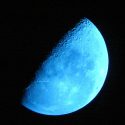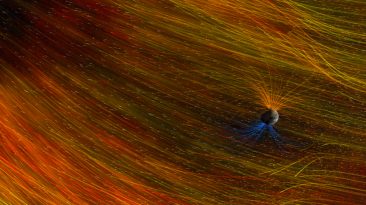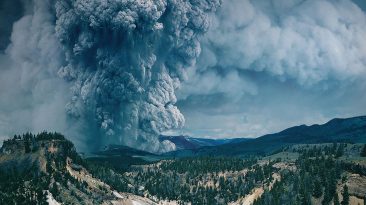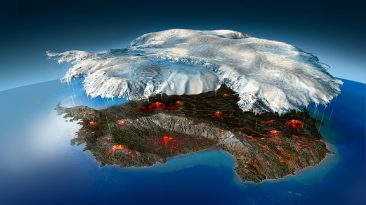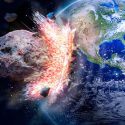In 1044, the Chinese invented gunpowder. And we’ve been getting into trouble ever since. Fireworks are cool, nuclear warfare is not. And nuking the moon? Doesn’t that sound just plain crazy? What would happen? Would we even see the blast? How would we be affected by the fallout? Would we even survive?
In 1957, the Soviet satellite Sputnik successfully orbited Earth, putting Russia ahead in the space race. Not to be outdone, the Americans decided they were going to nuke the moon. The U.S. believed that a lunar explosion visible from Earth would showcase American firepower and improve morale at home. Would seeing something like this in the sky give you peace of mind?
The most powerful nuclear bomb created has a yield of 50 megatons of TNT, the equivalent of 3,800 Hiroshima bombs. Wondering how nuking the Moon would affect humanity? The short answer is this: it wouldn’t.
You’re gonna need a bigger bomb… Roughly 10 trillion megatons of TNT bigger. An explosion that size would likely push the Moon out of Earth’s orbit, exposing us to meteors, affecting our tides, eventually killing all marine life, while catastrophically affecting our seasons…
So while our bomb might not be able to knock the Moon off of its trajectory, could our experiment drastically affect its radiation levels? That would be a big problem. Among the many reasons the U.S. canceled the 1958 plan to nuke the Moon – apart from worldwide disapproval – was the idea that the nuclear fallout would ruin the military’s plans to colonize the moon by 1967.
But our moon isn’t like Earth. It’s not protected by an ozone layer, meaning it’s directly exposed to cosmic rays and solar flares. This results in high levels of space radiation on the Moon’s surface, and so much of it, the radioactive fallout from a single nuclear explosion would hardly make a difference.
Interestingly, NASA is still looking for a way around the Moon’s radiation problem since it hopes to build and staff a lunar base there in the near future.
If we detonated a nuke on the Moon, the most damage we might do physically is add another crater to its surface. Which is ironic, since the Moon gets its craters from blocking meteorites heading for Earth. So maybe we should stop trying to attack it, and be grateful for its defenses and the seasons and the tides.
If you want space nukes, go watch Star Wars.
Correction: The video episode mentions Sputnik as the first satellite to orbit the moon. Sputnik was the first satellite to orbit Earth, whereas the Soviet spacecraft Luna 10 was the first to orbit the moon.
Subscribe to What-If on YouTube or follow the show on Facebook Watch.









